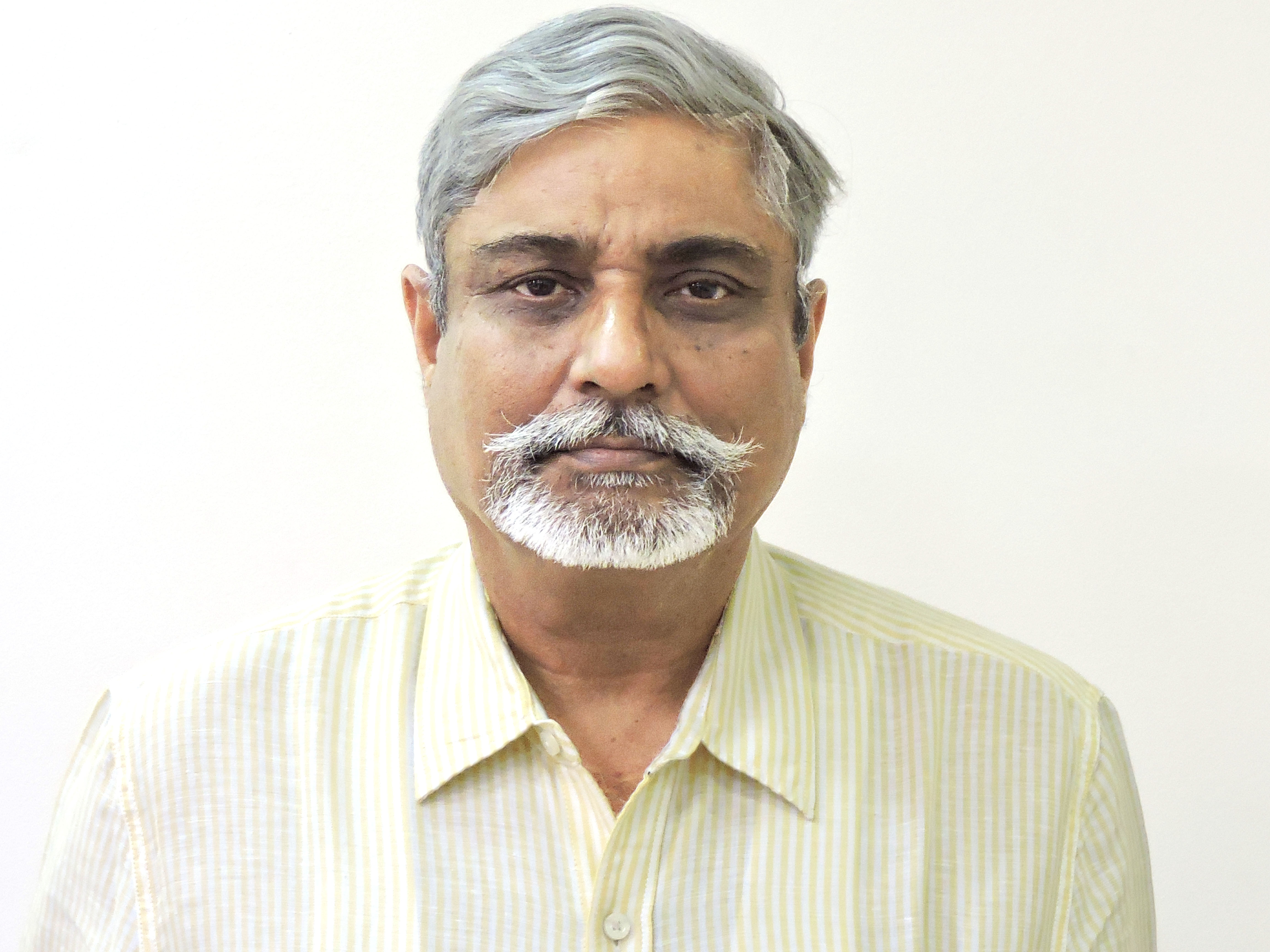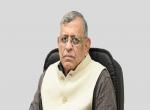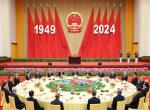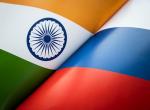“What perturbs me greatly is the fact that not only India has once before lost her independence, but she lost it by the infidelity and treachery of some of her own people” - Constituent Assembly speech, November 1949.
The World’s largest democracy seems to be caught in an ominous whirlpool. The calamity of unbridled corruption, brazen acts of mob violence and immunity of fissiparous practices appear to have conspired to subvert the very idea of Indian nationhood and the sublime bondage that flowered across the motherland at the time of Independence. Internal stability, and by implication national integrity, seems to be under attack. There is debate in homes, offices, markets and media, even in films, of the culpability of a combine of rapacious citizenry and venal society in bringing the nation to such a pass. And it is usual to point fingers at the chicanery that goes by the name of our political system.
People make societies and societies make a nation. Obviously, quality, character and collective wisdom of the people decide a nation’s destiny in terms of stability, security and integrity. Therefore, looking at the growing role of congenial corruption and unscrupulous politics in governance and its social endorsement among a fast-multiplying support base of lawless people which morphs into electoral gains, concerned citizens are troubled by questions such as: Is a rising social, economical and political divide rending the Indian nationhood apart, from within? Is the nation jettisoning its innate wisdom and sublime morality to break itself up into self-centred pressure-groups of subversive agenda - an agenda that the ever-persistent efforts of our external detractors have failed to realise so far? Is our internal diversity, instead of promoting unity, turning to trigger polarisation?
Indeed there are such portends; it may do good to find as to where might the causes lie.
The Indian State
A pan across that Bharatvarsha reveals that decades long clamour for secession from the Union of India continues in some parts of its North-East and the Vale of Kashmir, while fiendish delusions continue to attract the proponents of ‘Khalistan’, ‘Ahom Nationalism’ and many of their ilk. Then we have a large part of Central India where the writ of the Indian State ends just a few kilometres from larger towns, the Maoist rebels having committed to annihilate an ‘anti-people’ governing system - manifestation of that diabolic notion can no more be dismissed as frivolous. But such rebellions can not sabotage social unity and national stability; these are adequately tackled, albeit tenuously, by India’s state-power as it has been the case so far.
The Indian state is made up of laudatory institutions and an overarching constitutional wisdom to guide the course of administering the nation and preserving the nationhood against inimical forces. In this system, the basic building blocks of the Union are the Central, State and local seats of elected governance, and various executive arms of civil administration. But finally, the health of nationhood is maintained by the people who bond together to characterise their societies, which, in turn, chart the course of governing the nation. The real danger to the nationhood therefore lies in the citizenry going astray in subverting nationhood in order to seek exclusive political, social or economic advantages and so trigger internal estrangements and group alienations under the influence of that illusion.
Let us then see as how well the institutions of the Indian state fulfil the obligation of preserving our nationhood. We may start with the Central Government.
Political Disorientation at the Centre
The Indian version of democracy seems to have adopted a dangerous path. Clinging to power regardless has became the sole objective of politics. Political scruples, never laudable in any case, have crossed the limits of debasement – for example, overlook of infiltration from Bangladesh and propagation of religious and caste divisions have turned acceptable expedients to gain social prominence and political power. In the politics of power-grab it is coming handy to subvert the peoples’ prime loyalty to the nation on grounds contrived or exaggerated while ignoring with brazen insensitivity their genuine concerns – Punjab, Kashmir, Assam, Tripura, Meghalaya and Central India’s tribal lands being some examples of the Central Government’s disorientation.
It is so that the performance of the Central Government belies most of the lofty rhetoric that it leaves no opportunity to blare out to her domestic and international audience. Proceeding backwards (pun intended) we find that parliament work may be contrived into a farce by one political group or the other over issues that are neither relevant nor contextual, and humungous misappropriation of natural resources and public funds may be acceptable in the name of coalition politics. In similar vein, politicians and their wheeler-dealers may loot the public and then ‘purchase’ immunity from conviction, they may bribe through parliamentarian ‘aye’ to keep power and declare that transaction as perfectly legal, crony-loans may be dispensed to the ruination of national economy, and it is found profitable to concede to religion’s fanaticism for votes, topple state governments, impose ‘Emergency’ to retain power, and so on - the list of democratic affronts at the Centre is long. Indeed, coinage of loaded terms like “extra-constitutional authority”, “criminalisation of politics”, “secular forces” etc. are but some reflections of misdeeds at the Centre. History tells us that such misdeeds damage the core of nationhood.
Notwithstanding a long list of transgressions, it may however be acknowledged that the governments at the Centre have not, directly or by intent, compromised on the nation’s integrity. Even if many of the troubles had been of their own making, aggression, secession or rebellion against national integrity have always been defeated, if at high costs. Presently, the declared intents of the Central Government raises nationalist hopes. Let us see if it succeeds, or is allowed to succeed to the disappointment of misguided detractors who would rather divide the society to rule the realm.
The States: Politics of Polarisation
In the contemporary dispensation at the state level, political morality seems to have been drowned into brazen nonchalance, even arrogance. Any dose of proscribed practices – graft of public goods, even that is meant for the poor, patronising corrupt and criminal acts, incitement of religious divide - any sin in fact - has become justifiable as long as these offer the promise of being elected to rule – and by implication, license to rapine. In Punjab, terrorists are pandered to in celebrating their treachery and flourishing drug trade is overlooked, while in Uttar Pradesh, West Bengal and Kerala, criminals are fattened in the name of protecting minority interests. In Maharashtra, social discourse is dictated by a local party of arm-twisters, and governance in Bihar is clutched at the neck by a convicted criminal and his turncoat outlaws many of whom stay out of jail by dispensing a part of the institutionalised graft that they perpetuate.
Loot and smuggling of the nation’s mineral assets, at mind boggling scales, is facilitated in Karnataka, Goa, Odisha, Jharkhand - there may be many more cases that are yet to surface. In Uttar Pradesh, rice for public distribution is transported for sale, by government railways, all the way to Bangladesh, and medicines are sold for profit, disputes over loot-shares being settled by ruthless murders. In Tamil Nadu, as indeed elsewhere, development and welfare schemes are branded as ruling party’s private philanthropy while leaders and sycophants go on to amass huge wealth from those very schemes! Almost all political parties have shown their mettle in purchase of legislative count – this practice has acquired amusing descriptions like “horse trading”, “aya ram - gaya ram” and “parading” of hoarded legislatures – as well as in dispensing tax payer’s money to cheat votes out of confused electorates in return for temporary doles. Indeed, money and muscle power play major part in state politics, and that enjoins the politicians to amass enough of moolah to keep their trade running - and when done with, leave enough wealth with the purpose of “feeding the coming seven generations”, as the saying goes. No wonder, political players, small, medium or big, all turn rich, richer or billionaires in sequence, just in a jiffy.
When public money is coffered into private lockers and huge bribes have to be paid to venture into entrepreneurships big or small, and when corruption is so endemic that one is asked to pay bribe even to open charitable schools and hospitals in undeveloped areas, true employment generation can not be but stymied. Consequently, the widening gap between the states’ capacity to satiate people’s wants and the resources to correspond to such wants causes distress in the society.
In their quest for power and pelf, political parties and their influential collaborators have taken to fracture the native societies by farcically peddling ‘democratic equality’ as ‘free entitlements’. There is opinion that incapable of bringing about true uplift of the society, political parties manipulate ‘vote banks’ through easy enticements to various interest groups - like ‘reservations’, free electricity, sheltering criminality etc. Taking cue, societies seem to have delinked ‘democratic freedom’ with the citizen’s charter. Blatant recourse to class and caste nepotism has divided the society into groups of fierce rivals who have to fight to snatch every crumb of life’s wherewithal. Majority of electorate is thus lured to cast their lot in favour of group aggrandisement, caste cabalism, illusionary inducements and usurpation of ‘profitable’ positions, while many live by turning ‘supporters’ of political rabble-rousing; politics after all seems to be the only sector that is not troubled by lack of funds.
Thus societies are first divided and then vandalised by provoking rival interest groups to gnaw at the few hanging fruits while the masses of marginalised citizens cower in silence. Governance is expected to bring freebee ‘rewards’ for interest groups rather than the uplift of the common man. In political discourse, no incitement or falsehood may be proscribed and no ‘popular demand’ may be unacceptable as long as these secure election into power; there have even been instances of regional political parties imposing their agenda over India’s neighbourhood foreign policy!
The vicious politics-electorate circuit is complete when seats of power become ‘winnable’ by the promise of patronage and usurpation, and political parties are compelled by their greed for power and pelf to adopt postures that foul against even their own line of reason – as it is evident from the discomfiture of their ‘spokespersons’. That is when the entire societal galaxy, the state, and eventually the nation could turn host for ‘gangrene’ to sets in – a kind of rot that leads to amputation. Threat to internal security could gains ground thus and national integrity might be put in danger.
But then it is conveniently self-absolving, even spontaneous, to ascribe the cause of that gangrene to unscrupulous politicking, self-serving political parties and a system of governance that wallows in corruption. But we may seek a diversion from that puerile pastime to look deeper into the proliferation of popular and societal solecism. Governments are elected by majority among the society, after all.
The Society: Rise of Anarchism
‘Demand’ is provoked for ‘reservations’ in education and government jobs even for affluent classes under notions which could be amusing had it not been for its destructive effects upon the society. Having found relative affluence in rising economy, these classes find their rising aspirations fail against competitive employability - neither have the young lot broken into high education or skills, nor are they able to repair to physically labourious vocations. The only course open to them is to find entry into higher academic institutions - for a genuine cause of gaining education – which is mirrored by a dubious cause of securing government jobs, the latter being an enticing refuge in which one, by norm, need not be troubled by hard work or ‘fixed’ income. Therefore, in starting from the scratch, ‘reservation’ must be the only course left for even the better-off classes to break into an already over crowded space – if that break-in could be applied on private sector, that would be all the more better! Meanwhile, the blessed lot among the beneficiary categories, the opulent ‘creamy layers’, fight to retain their vested interest in ‘reservation’, not for themselves as they piously aver, but ostensibly to keep the policy from being subverted by ‘high caste Machiavellians and so prevent the ‘dalit’ lot from being deprived’ (sic)! Of course, they have the wealth, influence and power to perpetrate their unjustified stranglehold.
So the political hopefuls are prompted to make ‘promises’ – if elected to power. Once there, and calibrated procrastination having failed to bail them out from that promise, sham pronouncements are made in the hope that the yet standing institution, the Supreme Court, would block the dangerous trend, as indeed it does. Political relief, however, is short lived; protagonists are not to be denied by moral propriety. Mass violence, in defiance of the constitution, judiciary and lawful state, is let loose. Despicable acts of barbarity and mayhem is perpetrated in the name of ‘expression’ of democratic rights.
Profit of polarisation is irresistible. So the story is repeated for religious, linguistic, statehood or any such misguided demands, even to name streets or to install statues. The end result is also the same. While the great lie of the Indian society being all ‘peaceful’ is exposed for by depraved acts of violence from individuals, groups and mobs against the defenceless, the usually pompous societal ‘elders’ find discretion in hiding, just as the police seeks expediency in performing the ‘statue’ act. Contrary to the sanctified principles of aid-to-civil authority, the Army is prompted to use ‘kid-gloves’; and so its awe-at-sight among the arsonists and mayhem may not last long. That may well be fine in a way – as the Government gives-in to arsonist’s blackmail, forces could well be hauled up for ‘use of excessive force’! Meanwhile, with every new agitation, the degree of violence, pillage and destruction rises higher and higher. Days are hijacked by anti-socials while people stand aside and watch, just as they do when goons torment the weak and helpless. The nation’s innate morality is violated thus; inexorably, its stability and security might follow suit.
Growth of economic disparity that fractures the society has emerged as another form of danger to national stability. Widening gulf between aspiring people and the class of wealth-predators, most of whom cut the corners to ply their trade in connivance of corrupt politicians and bureaucrats, is leading to buildup of societal anger. Rise of another kind of disparity-driven rebellion is therefore a danger not far-fetched.
Finally however, more than the brazen affronts to democracy and rule of law that these virtually routine occurrences slap at the face of our nationhood, the matter to be even more disconcerting is that the despicable acts perpetrated by political rascals to buy loyalty from the rank of anarchists finds the society’s electoral endorsement as long as partisan considerations are met, even if temporarily. That indeed is the root of the danger to our nationhood.
We, the People ...
As the political and societal power-wielders master the art of diverting rather than making honest attempts to address the cry against corruption, breakdown of law and order, judicial infirmity and administrative high handedness, signs of growing dismay among the sober citizenry are left ignored in the hope that tricks and subterfuge might keep them in business. Over time, as a natural fallout of this situation, political immorality and societal endorsement of it might permeate into the psyche of the people. The signs are already ominous - the country is seized by such unabashed lawlessness that the ‘mafia’ tradition in land, drug, mining, extortion and arms trade has spilled over to construction, education, health and most such sectors as if ‘scam’ is a fundamental right, while criminally motivated elements, spontaneous as well as the hard core ones, think nothing of blocking roads and burning property to express their ‘protest’ on any matter that may tickle their mentality. Democratic rights are increasingly finding expression through violent protests accompanied by arson of public property, burning down police stations and murder of officials, while fear of voter alienation keeps the civil administration watching stoically.
Over-age and under-witted ‘student activists’ call out to ‘break up’ the nation. Contemptuous of even judicial rulings, they vilify those who question their ‘freedom’ to abuse the nationhood. These eloquent fraudsters find so much solidarity from opportunist politicians, elected by the people, that even the law has to stand aside. Then there are people to reconcile, even facilitate, in teachers not teaching, doctors mistreating, contractors cheating, workers idling, administration sleeping and scoundrels abusing civility - all with guaranteed impunity. People bribe to be recruited, purchase appointments, bargain for impunity against in graft and arson, and torch vehicles that are caught up in their frequent ‘rasta-rail roko’ excesses – all as a matter of course!
No doubt, the causes of popular and societal distress are undeniably realistic; anti-nationalism can not be sustained unless nurtured by factors more fundamental. Indeed, all the abovementioned intransigents like to profess their ideological credentials, and taking freedom to be a ‘license’ to do whatever as long as sufficient number of lumpens gather to claim representation of the ‘majority’, proceed to proclaim the rule of that ‘majority’ to supersede the ‘rule of law’. All remain hopeful that their ‘struggle’ – read intransigence - enjoys democratic sanction and strengthens what they believe to be the Indian nationhood. It is therefore difficult to decide as to who might the worse offender be – politicians, voters, people, or none of the above but the vicissitude of Indian mentality. Indeed, it is difficult to decide as to what strikes at the roots of nationhood – our moral downfall, materialistic aspirations, individual freedom, societal corruption, political geed, callous governance or youngsters’ illusions. How could the intransigence be ordained against, who would listen to such ordination?
Democracy: Rule of Law or License for Electorate Majority?
It appears that ‘virus’ have ensconced themselves to infect our democracy. Further, under a pervasive notion of self-aggrandisement, growing sections of peoples, societies, and the state-functionaries seem to have found common cause with that ‘virus’. Thus the first hints of moral degeneration and eventual calamity over the nationhood may be coming from the citizen’s repudiation of social accountability, and from party politicians unabashedly justifying the unjustifiable - without a trace of compunction. Electoral success of criminals-turned-neta’s and crass ‘populism’ of ‘compensating’ to arsonists, while military veterans have to return their war medals to seek their dues, could be some other hints of that looming calamity; there could be many more.
As the spiral of people’s angst is caught up in a tornado of greater anarchy, social divides might become impossible to seal, violence and arson of public and private property might become the norm and subversion of the majesty of the state may become imminent. Internally generated, this alienation should find resolution through a sanitised electoral process. But if that process is itself is vitiated by electoral malpractices and voter’s disorientation, and its purification remains blocked by unscrupulous beneficiaries of that very process, then there is a looming danger of more and more internal fissures breaking ground.
As history tells us, malignancy of unscrupulous politics invites national nemesis, while callous dismissal of public concerns accelerates that disaster. Poisonous infection of free-for-all license in the name of democracy is therefore a sure recipe for eventual breakdown of societal order. Such social alienation across the nation has the potential to coalesce into a kind of mass, pan-India anarchy, may be in alliance with the vast-spread of Maoist rebellion. Ominously, such confrontations between the state and its people is unwinnable by any party, but it is quite capable of shattering the nationhood. And that is a situation which undermines the nation’s security - internal, and by default, external – a situation that the ever-poised enemies of the Indian nationhood await to strike at.
Signs of Redemption?
The question is that as to how and how long would the Indian state wield its centripetal power to bind the nation together when the binders are being incessantly gnawed at - from within, by its own. The encouraging note is that the silent majority has started stirring. Watch-dogs, if small in numbers but effective nonetheless, and a groundswell of concerned commoners have started to rise to contest anti-national activities. May be that is a hint of the celebrated Indian resilience rising to banish anti-nationalism.
Time has come to girdle up to destroy the ‘virus’ and so once again belie that inveterate India-baiter, Winston Churchill’s nonsensical howler: “Power will go to the hands of rascals, rogues and freebooters. All Indian leaders will be of low calibre and men of straw. They will have sweet tongues and silly hearts. They will fight amongst themselves for power and India will be lost in political squabbles.”
Published Date: 23rd March 2016, Image Source: http://www.livemint.com
(Disclaimer: The views and opinions expressed in this article are those of the author and do not necessarily reflect the official policy or position of the Vivekananda International Foundation)










Post new comment